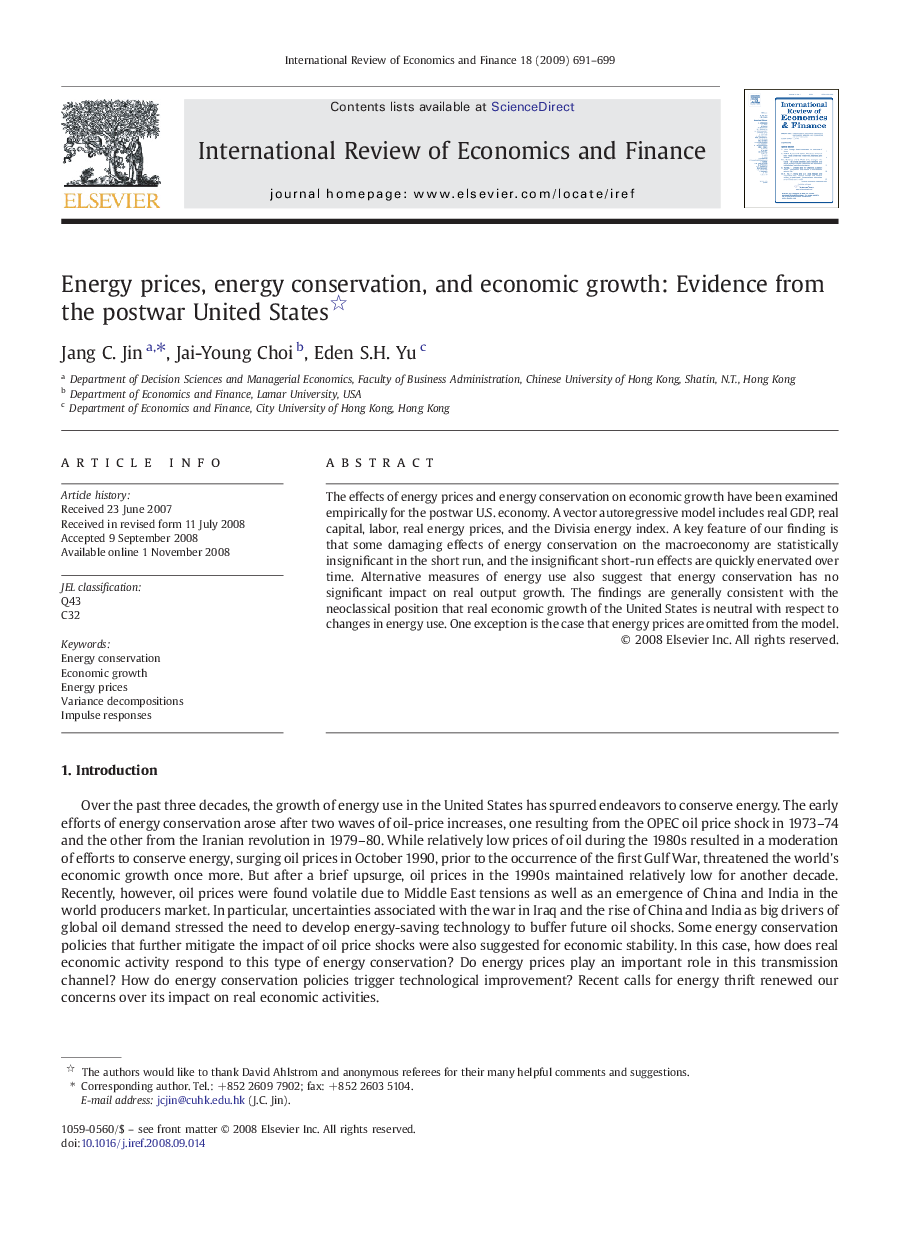| Article ID | Journal | Published Year | Pages | File Type |
|---|---|---|---|---|
| 5084196 | International Review of Economics & Finance | 2009 | 9 Pages |
Abstract
The effects of energy prices and energy conservation on economic growth have been examined empirically for the postwar U.S. economy. A vector autoregressive model includes real GDP, real capital, labor, real energy prices, and the Divisia energy index. A key feature of our finding is that some damaging effects of energy conservation on the macroeconomy are statistically insignificant in the short run, and the insignificant short-run effects are quickly enervated over time. Alternative measures of energy use also suggest that energy conservation has no significant impact on real output growth. The findings are generally consistent with the neoclassical position that real economic growth of the United States is neutral with respect to changes in energy use. One exception is the case that energy prices are omitted from the model.
Keywords
Related Topics
Social Sciences and Humanities
Economics, Econometrics and Finance
Economics and Econometrics
Authors
Jang C. Jin, Jai-Young Choi, Eden S.H. Yu,
